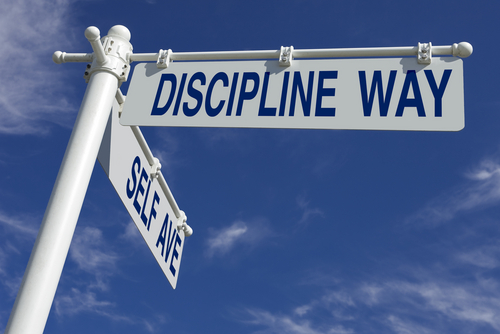Gordon and Becki West are the founders of KidZ at Heart International (kidZatheart.org) and co-authors of The Quick Guide to Discipline for Children’s Ministry. They shared some sobering information with us in their discipline book. “After more than 25 years as children’s ministry leaders in the local church, we’ve discovered that disillusionment created by discipline problems is the #1 reason Sunday school teachers and children’s ministry volunteers quit.”
Just by looking at the words, you can tell that discipleship and discipline are connected. Teaching manners or proper classroom behavior in love is something we can do to help kids grow. Here are some quick tips and suggestions when it comes to kids’ behavior from Gordon and Becki West’s The Quick Guide to Discipline for Children’s Ministry.
***
1. Preschool Bad Language
Preschoolers are great mimics, and they repeat words they overhear. They often don’t understand what they’re saying or understand a word’s meaning. If a preschooler says a bad word once, ignore it. Calling attention to it may cement it in the child’s vocabulary, especially if it gets a reaction from you.
However, if the child repeats the word, take him aside and ask him what the word means. If he doesn’t know, gently ask him not to repeat the word because it’s not a nice word. If the child understands the word’s meaning, explain how it makes you feel and that he can’t use it in your classroom. Then talk to his parents to make them aware of the situation.
2. Bullying
Most bullies operate under the assumption that behavior is wrong only if it results in punishment. To counter this, establish a set of clear, firm rules that define behavior expectations, and then point out exactly where the bully has crossed the line and why his behavior isn’t tolerable. Be especially vigilant during active games where lots of noise and movement can obscure deliberate acts of aggression. Your correction must be reasonable, appropriate, and purposeful.
Bullying is a deep-rooted problem that affects everyone—not just the kids getting picked on. You need a zero-tolerance policy that communicates bullying will not be accepted—this includes all forms of verbal harassment, such as gossip, put-downs, and ridicule, as well as physical aggression.
3. Preteen Disrespect
Preteens need two things from adults: understanding and modeling. Young adolescents are confused and frustrated about all the changes going on in their lives. Many don’t feel good about themselves and end up taking it out on others. This emotional turmoil frequently results in mouthy preteens. While this doesn’t make tearing down someone else acceptable, it helps to understand what causes the problem. Although being disrespected is frustrating, don’t respond in anger. Demonstrate appropriate behavior to your preteens. Model respectful conversation when you talk with other adults and your preteens. Use gentle words and calm tones. In other words, talk to your preteens the way you want them to talk to you.
5. Dressing Appropriately
First, pray for discernment. Make sure the way your kids dress is truly inappropriate and not just a fad that annoys you. Dressing differently is one way preteens express their developmentally appropriate need for autonomy.
Next, gather input on appropriate dress for preteens from parents. Parents are on the front line when it comes to setting and enforcing standards. As much as possible, allow them to drive standards.
Finally, share apparel standards with your entire preteen group. For special events, such as camps or overnighters, specifically state what attire is appropriate; for example, “only one-piece bathing suits allowed.” Without gentle guidance, your preteens may well gravitate toward the lowest fashion standards. Your willingness to address the issue will help kids learn to dress appropriately.
***
Make sure to check out The Quick Guide to Discipline for Children’s Ministry. With 101 good ideas for bad behavior, you’ll find the most effective discipline tips for every issue you’ll face.
How do you help your kids discover how to behave? Let us know in the comment section below!













